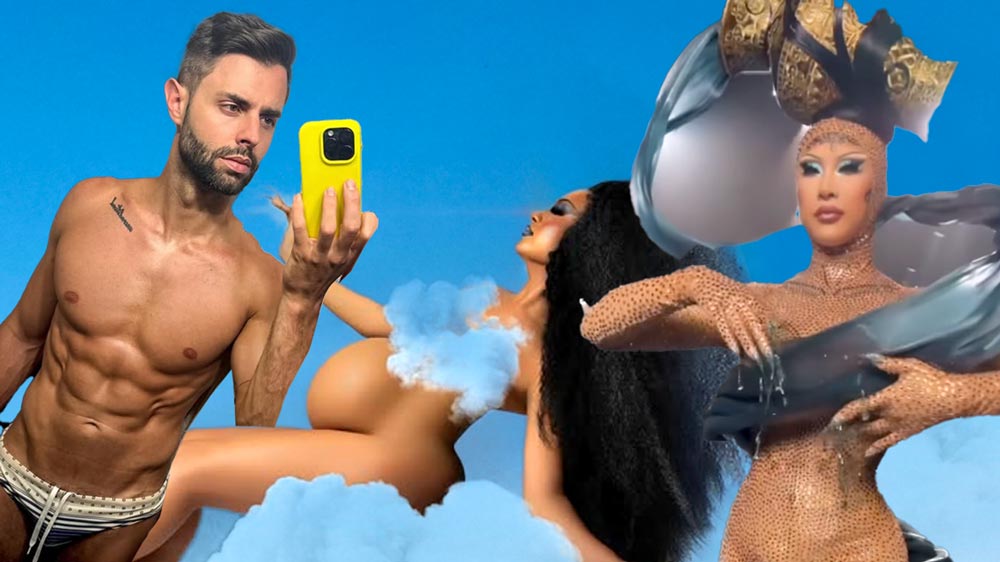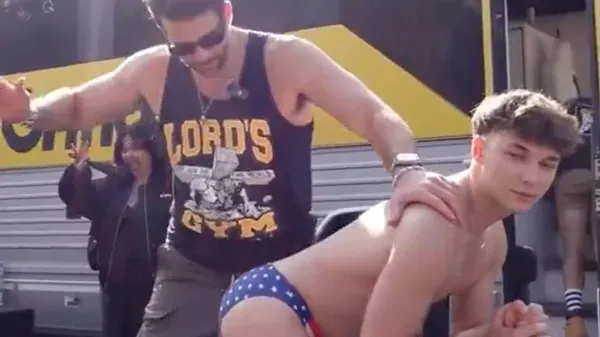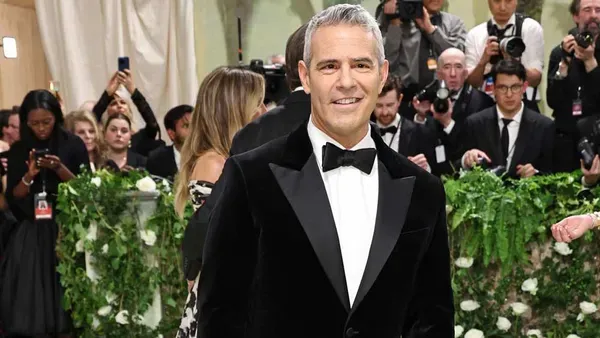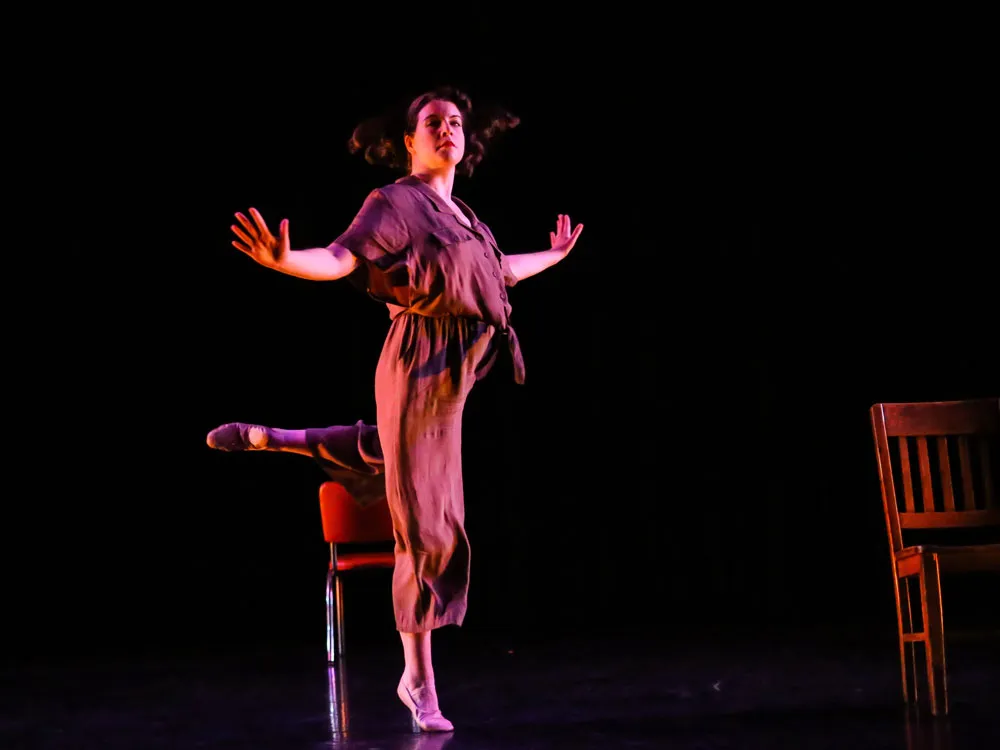
January 24, 2023
Maggie Cee Explores the Femme/Butch Dichotomy with Solo Dance Piece
Steve Duffy READ TIME: 7 MIN.
Maggie Cee describes herself as an artist, activist, dancer, writer, and educator committed to community and social change. Towards that end, she created The Femme Show, a ground-breaking touring variety show about queer femme identity and femininity. Cee started the show in 2007 in a Boston church basement. It has since toured throughout the United States.
Her website bio adds that "during her baby-gay-for-pay career, Maggie was featured in the Advocate magazine's 2006 'Future Gay Rights Leaders.' She attended Emerson College on the Mutchnick Scholarship for LGBTQ activism."
She brings her latest piece, "Ladies at a Gay Girls' Bar, 1938-1969," to Cambridge, MA on Sunday, February 12, 2023, 7pm, to The Dance Complex.
"Maggie Cee brings the history of 20th-century fem(me)/butch lesbian bars to life, illuminating the feminine women whose stories are too often forgotten, but whose strength and determination paved the way for the gay rights movement that followed," reads a description of the piece on the Dance Complex website. "This intimate performance imagines the queer past and passions between people who loved, fought, and created space to be themselves out of sheer necessity and determination."
Maggie lives with the butch of her dreams, their co-op mates, and three orange cats in Hudson, MA. When she's not making and producing queer art, she can be found teaching ballet, sewing her own clothes, and swimming outdoors as often as possible.
EDGE spoke to Cee about her new piece, being a queer dancer, and the femme/butch dichotomy.

EDGE: Who is Maggie Cee?
Maggie Cee: I am a dancer and artist. I moved to Boston to attend Emerson College and then stayed to teach dance and work on marriage equality. I founded The Femme Show in 2007, which is a variety show about queer femme identity and femininity. We performed it annually in Boston and around the East Coast from 2007 to 2019. I am taking a little break from it to focus on my new solo show, "Ladies at a Gay Girls' Bar."
EDGE: What is it about dance that you feel is so inspiring?
Maggie Cee: I was a very stereotypical little femme girl who loved ballet, tutus, and sparkles. A lot of kids go through that phase, but I happen to be somebody who stayed with it. As I grew older, I enjoyed the work of moving my body that dance gave me. I found it really fulfilling. There were times that I felt like I was going to move away from it, but always found myself coming back to it. It's just the right thing for me.
EDGE: How does dance intersect with you and your queerness?
Maggie Cee: I think there's something really powerful about embodiment and about queer people feeling comfortable and feeling pleasure in our bodies. I find it important to be together physically in our community. In mainstream white American culture, there's an idea that dance is one of the most frivolous of art forms. So, it's not always understood or embraced. I think when queer people can figure out how to celebrate, enjoy, and move their bodies and express themselves with their bodies, it's really powerful.
EDGE: I feel like there are strict gender norms for dancers to conform to. Have you ever felt the pressure to?
Maggie Cee: I think there's a couple layers to it. There's an idea in the U.S. that dance is an activity or career that is feminized. It's considered to be feminine and only for cis straight women and stereotypical gay men, which is so incorrect. As a feminine cisgendered queer woman dancing or performing, I would usually be the only queer woman in the room with straight women and some queer men who didn't necessarily know. I would always have to come out to the gay men that were in my companies. Everyone would just assume that I was straight. Dance is a funny thing. To be in a ballet for all kinds of gender expression for women to dance traditionally masculine roles, and for men to dance traditionally feminine roles. I just happen to be a feminine person who wants to embrace, explore, and enjoy a feminine kind of movement quality. It's another layer of subversion to go and create an environment where people can express their gender however they want.
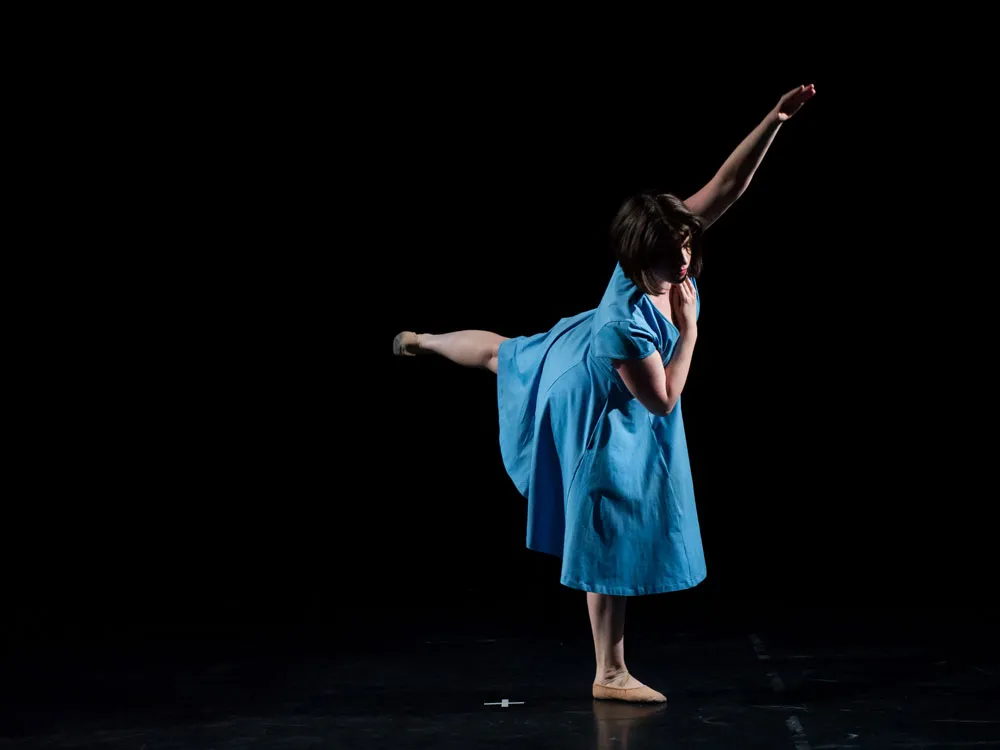
EDGE: Tell us about "Ladies at a Gay Girls' Bar, 1938-69."
Maggie Cee: It's a solo show that uses text from the Buffalo Women's Oral History Project and some other historical sources that talks about the history of working-class butch/femme communities in the United States during the mid-20th century. A lot of the stories and narratives from that time are framed around the experience of the butch women and their butch-ness. There was a misogynist attitude that femme women weren't gay. Yet there were all these butch women who wanted to date them. So, the femme women are sidelined in history. I explore my own identity and what my femme identity means in this century. I looked to this history and created the show around it. I wanted to share our history, but also imagine what that femme experience might have been like, because there are fewer actual historical records of those stories.
EDGE: What fascinated you most about this queer history?
Maggie Cee: I really am fascinated by how many ways there are to express gender and sexual orientations. I happen to be somebody with a pretty strong orientation towards butch and masculine people. I read "Boots of Leather, Slippers of Gold: The History of a Lesbian Community," by Madeline Davis and Elizabeth L. Kennedy, which is part of the Buffalo Women's Oral History Project, and in the writing by Joan Nestle, who's a Jewish lesbian feminist activist, I was really struck by how this is an orientation and a desire that has always been around. When we look at the second wave of feminism and lesbian separatism, they were really kind of anti-butch/femme.
It was really taking this class prejudice and this prejudice against femininity and putting it back onto working class. This is not a mainstream queer movement, but there's a community, a history, and lineage that that really drew me to create this work.

EDGE: What is the femme/butch dichotomy?
Maggie Cee: The blueprint and the history that I'm talking about goes back to these working-class communities, where people were creating spaces, mostly in bars, where butch women could wear pants and express their gender and to have relationships primarily with other women who were feminine expressing. Its an underground movement that not everyone knows even existed. For me and many in the queer community, it kind of feels like a fundamental fact, but it's certainly not something that everyone knows. I think a lot of straight people, and even queer people, think that the gay rights movement started with Stonewall, but this movement goes way back before then, and I believe helped start the gay rights movement.
EDGE: What about your work do you think speaks to audiences right now?
Maggie Cee: There's an aspect of a coming out story to it, and I think coming out stories are love stories. I think they're always compelling. I think there's something new and engrossing about them. As people reemerge from the pandemic and try to figure out how to build community in person and online, there's a lot of discussion lately how few lesbian bars there are in the U.S. and in Boston. We really don't have any queer bars at all. There is a movement to start them again. The people who run Sapphic Saturdays are putting together a website to raise funds to open an in-person space. Knowing the history of how important these spaces are, and how important real-life connection is to the LGBTQ community, really speaks to people now.
EDGE: What's next for you?
Maggie Cee: I am bringing this show to a few different places. In May, I'm going to be in the UK at the Brighton Fringe Festival. I'm also booking some shows throughout the year in other parts of New England. For a while I am just going to share this show with other people, and then decide if I'm ready to start another solo show or bring back The Femme Show.
For more information on Maggie visit, https://www.thefemmeshow.com/maggie-cee.html
"Ladies at a Gay Girls' Bar, 1938-1969" will be performed at The Dance Complex February 10-12. For tickets, information and event updates, visit dancecomplex.org/events. The schedule is subject to change. The Dance Complex is at 536 Massachusetts Ave, Cambridge, MA.
